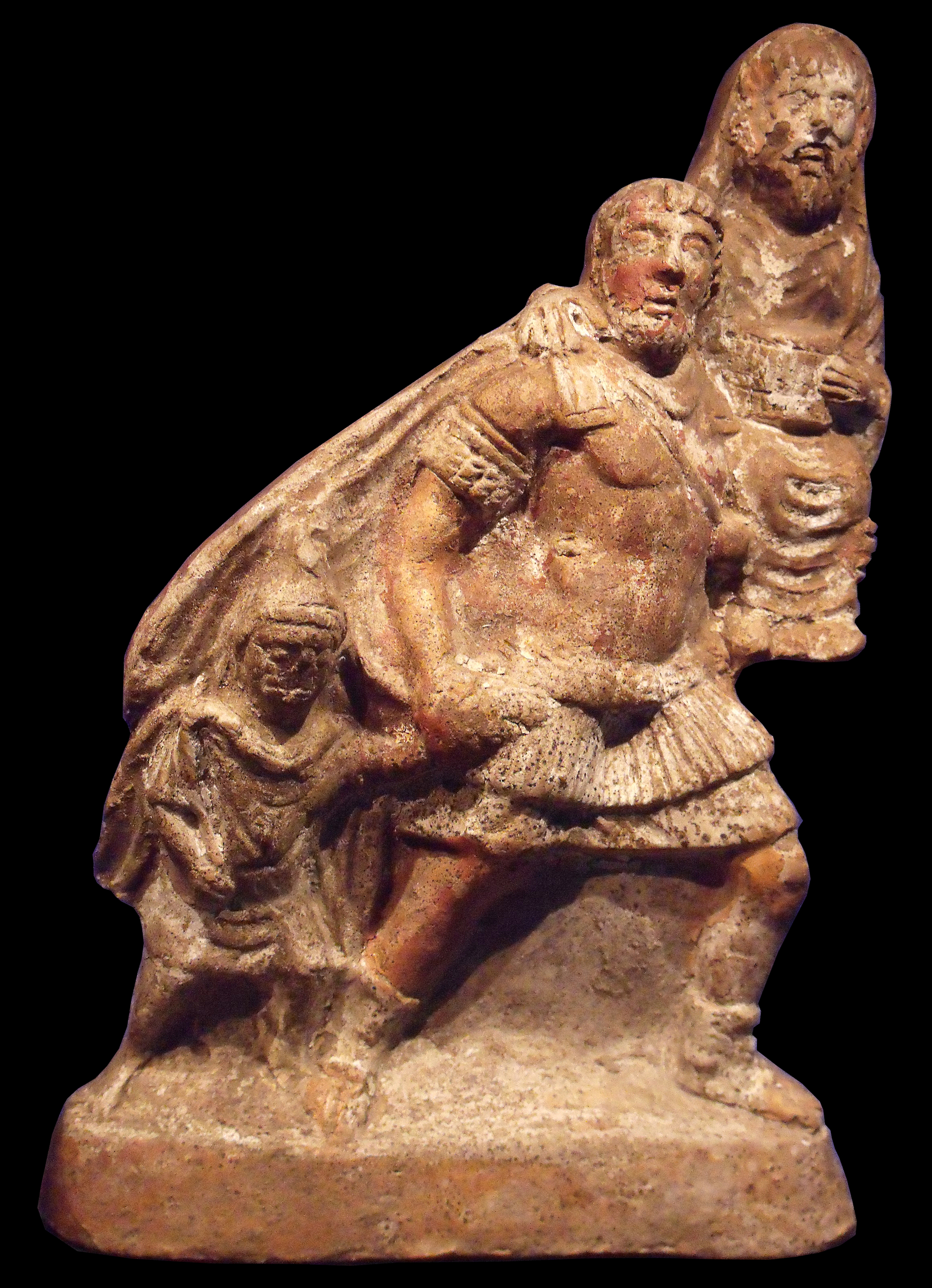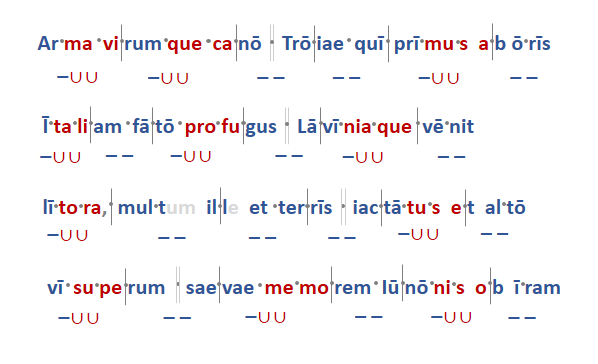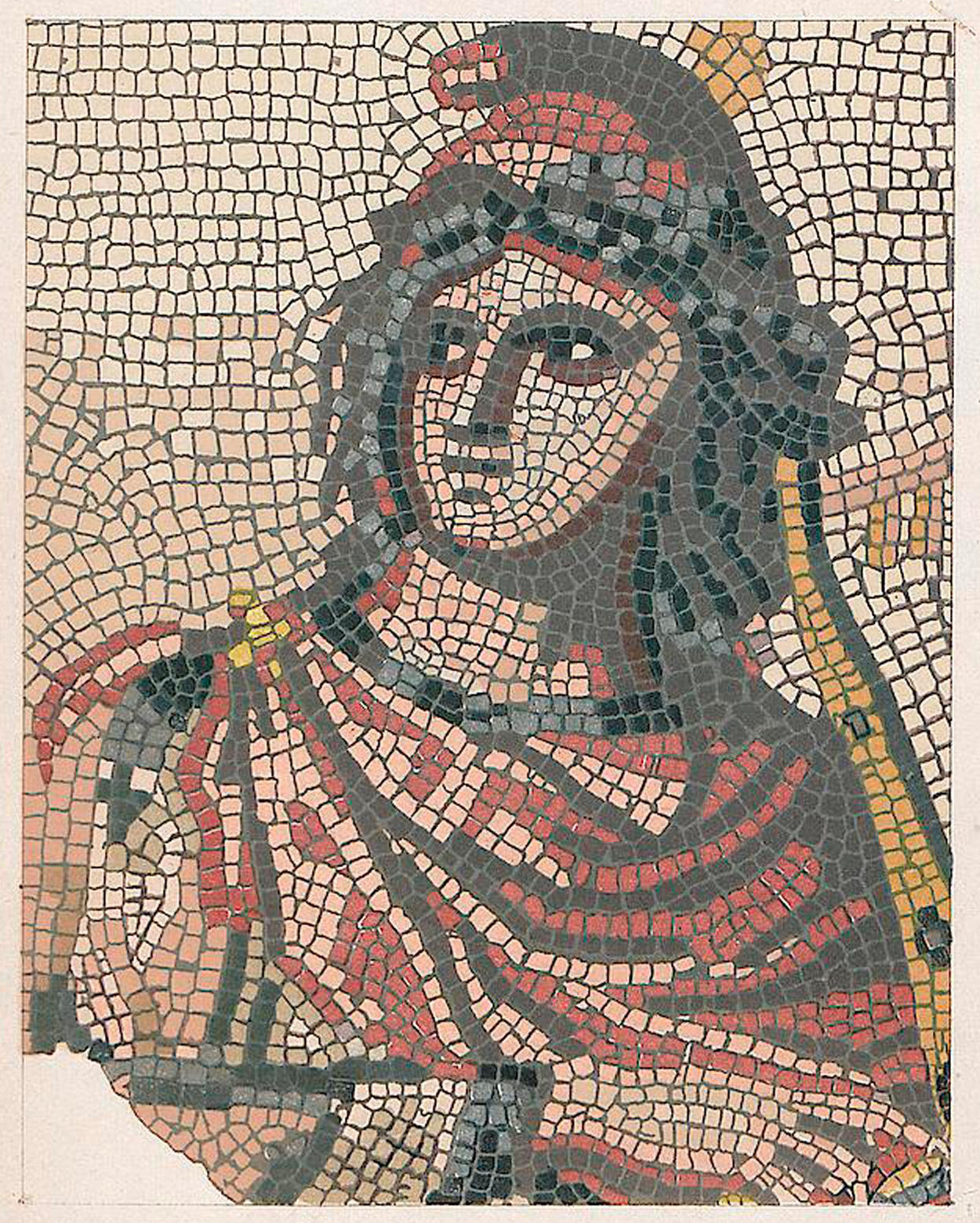|
Eclogues
The ''Eclogues'' (; , ), also called the ''Bucolics'', is the first of the three major works of the Latin poet Virgil. Background Taking as his generic model the Greek bucolic poetry of Theocritus, Virgil created a Roman version partly by offering a dramatic and mythic interpretation of revolutionary change at Rome in the turbulent period between roughly 44 and 38 BC. Virgil introduced political clamor largely absent from Theocritus' poems, called idylls ('little scenes' or 'vignettes'), even though erotic turbulence disturbs the "idyllic" landscapes of Theocritus. Virgil's book contains ten pieces, each called not an idyll but an eclogue, from the Greek ('selection', 'extract'). The poems are populated by and large with herdsmen imagined conversing and performing amoebaean singing in rural settings, whether suffering or embracing revolutionary change or happy or unhappy love. Performed with great success on the Roman stage, they feature a mix of visionary politics and e ... [...More Info...] [...Related Items...] OR: [Wikipedia] [Google] [Baidu] |
Eclogue
An eclogue is a poem in a classical style on a pastoral subject. Poems in the genre are sometimes also called bucolics. The term is also used for a musical genre thought of as evoking a pastoral scene. Classical beginnings The form of the word ''eclogue'' in contemporary English developed from Middle English , which came from Latin , which came from Greek () in the sense 'selection, literary product' (which was only one of the meanings it had in Greek). The term was applied metaphorically to short writings in any genre, including parts of a poetic sequence or poetry book. As a genre of poetry, Eclogues began with the Latin poet Virgil, whose collection of ten '' Eclogae'' was ultimately modelled on the '' Idylls'' of Theocritus. and was alternatively termed ''Bucolica''. Found there was a sophisticated mixture of pastoral dialogues, song contests and contemporary references. Virgil's term was used by later Latin poets to refer to their own pastoral poetry, often in imitation ... [...More Info...] [...Related Items...] OR: [Wikipedia] [Google] [Baidu] |
Vergilius Maro - Bucolica, A
Publius Vergilius Maro (; 15 October 70 BC21 September 19 BC), usually called Virgil or Vergil ( ) in English, was an ancient Roman poet of the Augustan period. He composed three of the most famous poems in Latin literature: the ''Eclogues'' (or ''Bucolics''), the ''Georgics'', and the epic ''Aeneid''. A number of minor poems, collected in the ''Appendix Vergiliana'', were attributed to him in ancient times, but modern scholars generally regard these works as spurious, with the possible exception of a few short pieces. Already acclaimed in his own lifetime as a classic author, Virgil rapidly replaced Ennius and other earlier authors as a standard school text, and stood as the most popular Latin poet through late antiquity, the Middle Ages, and early modernity, exerting inestimable influence on all subsequent Western literature. Geoffrey Chaucer assigned Virgil a uniquely prominent position among all the celebrities of human history in ''The House of Fame'' (1374–85), describi ... [...More Info...] [...Related Items...] OR: [Wikipedia] [Google] [Baidu] |
Virgil
Publius Vergilius Maro (; 15 October 70 BC21 September 19 BC), usually called Virgil or Vergil ( ) in English, was an ancient Rome, ancient Roman poet of the Augustan literature (ancient Rome), Augustan period. He composed three of the most famous poems in Latin literature: the ''Eclogues'' (or ''Bucolics''), the ''Georgics'', and the Epic poetry, epic ''Aeneid''. A number of minor poems, collected in the ''Appendix Vergiliana'', were attributed to him in ancient times, but modern scholars generally regard these works as spurious, with the possible exception of a few short pieces. Already acclaimed in his own lifetime as a classic author, Virgil rapidly replaced Ennius and other earlier authors as a standard school text, and stood as the most popular Latin poet through late antiquity, the Middle Ages, and early modernity, exerting inestimable influence on all subsequent Western literature. Geoffrey Chaucer assigned Virgil a uniquely prominent position among all the celebrities ... [...More Info...] [...Related Items...] OR: [Wikipedia] [Google] [Baidu] |
Eclogue 4
''Eclogue'' 4, also known as the Fourth ''Eclogue'', is a Latin poem by the Roman poet Virgil. The poem is dated to 40 BC by its mention of the consulship of Virgil's patron Gaius Asinius Pollio. The work predicts the birth of a boy, a supposed savior, who—once he is of age—will become divine and eventually rule over the world. The exact meaning of the poem is still debated. Earlier interpretations argued that the child was the hoped-for offspring of Mark Antony and Octavia the Younger. Some commentators shy away from imagining the child as a specific person. Edwin Floyd, for example, argued that the child could be seen metaphorically as Virgil's poetry. Another possibility, argued by Francis Cairns, is that the child is the expected offspring of Virgil's patron Gaius Asinius Pollio, to whom the poem is dedicated. In late antiquity and the Middle Ages, the poem was reinterpreted by Christians to be about the birth of Jesus Christ. Medieval scholars thus claimed that Virg ... [...More Info...] [...Related Items...] OR: [Wikipedia] [Google] [Baidu] |
Bucolic
The pastoral genre of literature, art, or music depicts an idealised form of the shepherd's lifestyle – herding livestock around open areas of land according to the seasons and the changing availability of water and pasture. The target audience is typically an urban one. A ''pastoral'' is a work of this genre. A piece of music in the genre is usually referred to as a pastorale. The genre is also known as bucolic, from the Greek , from , meaning a cowherd. Literature Pastoral literature in general Pastoral is a mode of literature in which the author employs various techniques to place the complex life into a simple one. Paul Alpers distinguishes pastoral as a mode rather than a genre, and he bases this distinction on the recurring attitude of power; that is to say that pastoral literature holds a humble perspective toward nature. Thus, pastoral as a mode occurs in many types of literature (poetry, drama, etc.) as well as genres (most notably the pastoral elegy). T ... [...More Info...] [...Related Items...] OR: [Wikipedia] [Google] [Baidu] |
Theocritus
Theocritus (; , ''Theokritos''; ; born 300 BC, died after 260 BC) was a Greek poet from Sicily, Magna Graecia, and the creator of Ancient Greek pastoral poetry. Life Little is known of Theocritus beyond what can be inferred from his writings. We must, however, handle these with some caution, since some of the poems ('' Idylls''; ) commonly attributed to him have little claim to authenticity. It is clear that at a very early date two collections were made: one consisting of poems whose authorship was doubtful yet formed a corpus of bucolic poetry, the other a strict collection of those works considered to have been composed by Theocritus himself. Theocritus was from Sicily, as he refers to Polyphemus, the Cyclops in the ''Odyssey'', as his "countryman." He also probably lived in Alexandria for a while, where he wrote about everyday life, notably '' Pharmakeutria''. It is also speculated that Theocritus was born in Syracuse, lived on the island of Kos, and lived in Egypt dur ... [...More Info...] [...Related Items...] OR: [Wikipedia] [Google] [Baidu] |
Gaius Asinius Pollio
Gaius Asinius Pollio (75 BC – AD 4) was a Roman soldier, politician, orator, poet, playwright, literary critic, and historian, whose lost contemporaneous history provided much of the material used by the historians Appian and Plutarch. Pollio was most famously a patron of Virgil and a friend of Horace and poems to him were dedicated by both men. Early life Asinius Pollio was born in ''Teate Marrucinorum'', the modern current Chieti in Abruzzi, central Italy. According to an inscription, his father was called Gnaeus Asinius Pollio. He had a brother named Asinius Marrucinus, whom Catullus calls out for his tasteless practical joke, whose name suggests a family origin among the Marrucini. Pollio may therefore have been the grandson of Herius Asinius, a plebeian and a general of the Marrucini who fought on the Italian side in the Social War. Pollio moved in the literary circle of Catullus and entered public life in 56 BC by supporting Lentulus Spinther. In 54, he unsuc ... [...More Info...] [...Related Items...] OR: [Wikipedia] [Google] [Baidu] |
Dactylic Hexameter
Dactylic hexameter is a form of meter used in Ancient Greek epic and didactic poetry as well as in epic, didactic, satirical, and pastoral Latin poetry. Its name is derived from Greek (, "finger") and (, "six"). Dactylic hexameter consists of six feet. The first five feet contain either two long syllables, a spondee (– –), or a long syllable followed by two short syllables, a dactyl (–ᴗᴗ). However, the last foot contains either a spondee or a long syllable followed by one short syllable, a trochee(– ᴗ). The six feet and their variation is symbolically represented below: The hexameter is traditionally associated with classical epic poetry in both Greek and Latin. Consequently, it has been considered to be ''the'' grand style of Western classical poetry. Examples of epics in hexameter are Homer's ''Iliad'' and ''Odyssey'', Apollonius of Rhodes's ''Argonautica'', Virgil's ''Aeneid'', Ovid's ''Metamorphoses'', Lucan's ''Pharsalia'', Valerius Flaccus's ''Argona ... [...More Info...] [...Related Items...] OR: [Wikipedia] [Google] [Baidu] |
Latin Literature
Latin literature includes the essays, histories, poems, plays, and other writings written in the Latin language. The beginning of formal Latin literature dates to 240 BC, when the first stage play in Latin was performed in Rome. Latin literature flourished for the next six centuries. The classical era of Latin literature can be roughly divided into several periods: #Early Latin literature, Early Latin literature, #The Golden Age, The Golden Age, #The Imperial Period, The Imperial Period and Latin literature#Latin in the Middle Ages, Renaissance, and Early Modernity, Late Antiquity. Latin was the language of the ancient Romans as well as being the ''lingua franca'' of Western and Central Europe throughout the Middle Ages. Latin literature features the work of Roman authors, such as Cicero, Virgil, Ovid and Horace, but also includes the work of European writers after the fall of the Empire; from religious writers like Thomas Aquinas, Aquinas (1225–1274), to secular writers like ... [...More Info...] [...Related Items...] OR: [Wikipedia] [Google] [Baidu] |
Calliope
In Greek mythology, Calliope ( ; ) is the Muse who presides over eloquence and epic poetry; so called from the ecstatic harmony of her voice. Hesiod and Ovid called her the "Chief of all Muses". Mythology Calliope had two famous sons, OrpheusHoopes And Evslin,''The Greek Gods''. , , 1995, page 77. "His father was a Thracian king; his mother the muse Calliope. For a while, he lived on Parnassus with his mother and his eight beautiful aunts and there met Apollo who was courting the laughing muse Thalia. Apollo was taken with Orpheus, gave him his little golden lyre, and taught him to play. And his mother taught him to make verses for singing." and Linus of Thrace, Linus, by either Apollo or King Oeagrus of Thrace. She taught Orpheus verses for singing. According to Hesiod, she was also the wisest of the Muses, as well as the most assertive. Calliope married Oeagrus in Pimpleia, a town near Mount Olympus. She is said to have defeated the daughters of Pierus (king of Macedonia), Pie ... [...More Info...] [...Related Items...] OR: [Wikipedia] [Google] [Baidu] |
Homer
Homer (; , ; possibly born ) was an Ancient Greece, Ancient Greek poet who is credited as the author of the ''Iliad'' and the ''Odyssey'', two epic poems that are foundational works of ancient Greek literature. Despite doubts about his authorship, Homer is considered one of the most revered and influential authors in history. The ''Iliad'' centers on a quarrel between King Agamemnon and the warrior Achilles during the last year of the Trojan War. The ''Odyssey'' chronicles the ten-year journey of Odysseus, king of Homer's Ithaca, Ithaca, back to his home after the fall of Troy. The epics depict man's struggle, the ''Odyssey'' especially so, as Odysseus perseveres through the punishment of the gods. The poems are in Homeric Greek, also known as Epic Greek, a literary language that shows a mixture of features of the Ionic Greek, Ionic and Aeolic Greek, Aeolic dialects from different centuries; the predominant influence is Eastern Ionic. Most researchers believe that the poems w ... [...More Info...] [...Related Items...] OR: [Wikipedia] [Google] [Baidu] |
Orpheus
In Greek mythology, Orpheus (; , classical pronunciation: ) was a Thracians, Thracian bard, legendary musician and prophet. He was also a renowned Ancient Greek poetry, poet and, according to legend, travelled with Jason and the Argonauts in search of the Golden Fleece, and descended into the Greek underworld, underworld to recover his lost wife, Eurydice. The major stories about him are centered on his ability to charm all living things and even stones with his music (the usual scene in Orpheus mosaics), his attempt to retrieve his wife Eurydice from the underworld, and his death at the hands of the maenads of Dionysus, who got tired of his mourning for his late wife Eurydice. As an archetype of the inspired singer, Orpheus is one of the most significant figures in the classical reception studies, reception of classical mythology in Western culture, portrayed or allusion, alluded to in countless forms of art and popular culture including poetry, film, opera, music, and painting ... [...More Info...] [...Related Items...] OR: [Wikipedia] [Google] [Baidu] |








